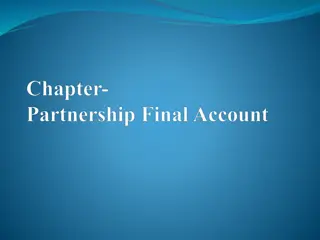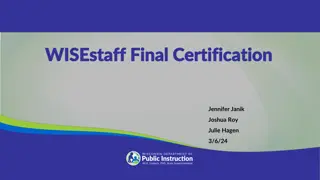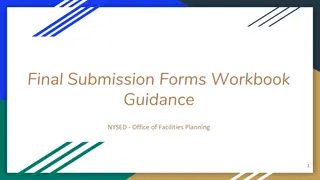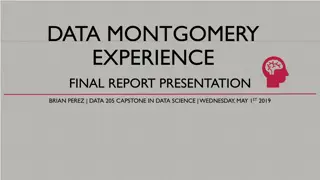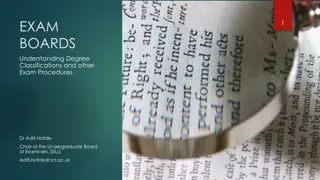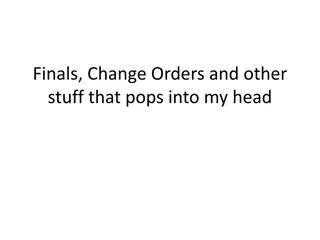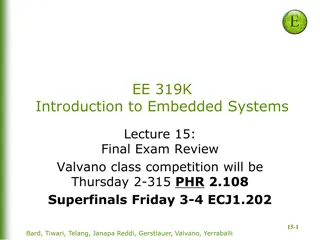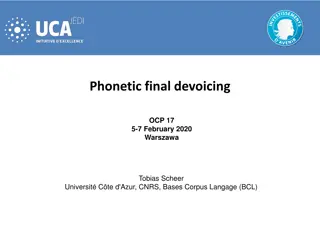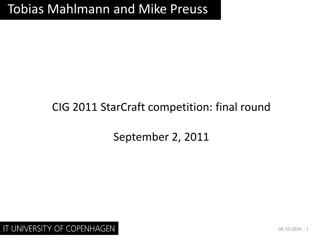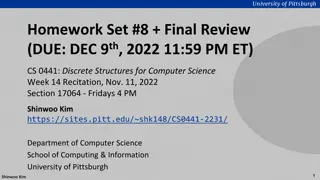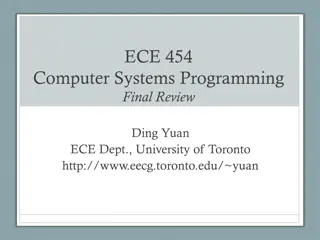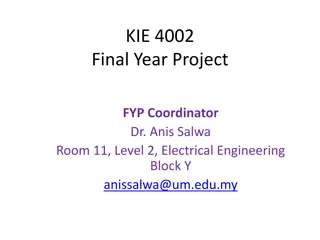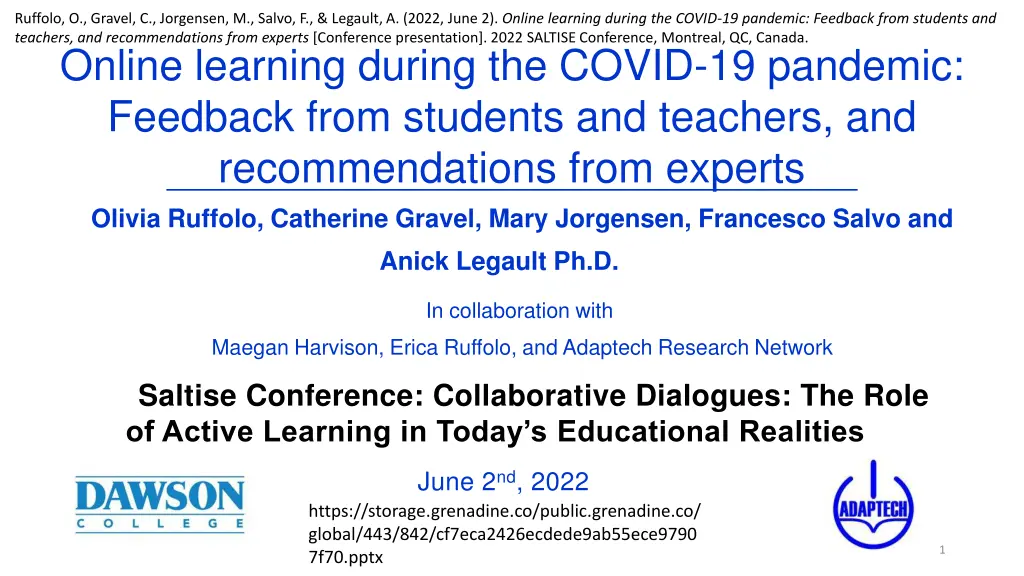
Insights into Online Learning: Student and Teacher Experiences
Gain valuable insights on online learning experiences during the COVID-19 pandemic. Explore feedback from students and teachers, along with recommendations from experts based on lived experiences. Understand the challenges faced, desires expressed, and recommendations for future educational strategies.
Download Presentation

Please find below an Image/Link to download the presentation.
The content on the website is provided AS IS for your information and personal use only. It may not be sold, licensed, or shared on other websites without obtaining consent from the author. If you encounter any issues during the download, it is possible that the publisher has removed the file from their server.
You are allowed to download the files provided on this website for personal or commercial use, subject to the condition that they are used lawfully. All files are the property of their respective owners.
The content on the website is provided AS IS for your information and personal use only. It may not be sold, licensed, or shared on other websites without obtaining consent from the author.
E N D
Presentation Transcript
Ruffolo, O., Gravel, C., Jorgensen, M., Salvo, F., & Legault, A. (2022, June 2). Online learning during the COVID-19 pandemic: Feedback from students and teachers, and recommendations from experts [Conference presentation]. 2022 SALTISE Conference, Montreal, QC, Canada. Online learning during the COVID-19 pandemic: Feedback from students and teachers, and recommendations from experts Olivia Ruffolo, Catherine Gravel, Mary Jorgensen, Francesco Salvo and Anick Legault Ph.D. In collaboration with Maegan Harvison, Erica Ruffolo, and Adaptech Research Network Saltise Conference: Collaborative Dialogues: The Role of Active Learning in Today s Educational Realities June 2nd, 2022 https://storage.grenadine.co/public.grenadine.co/ global/443/842/cf7eca2426ecdede9ab55ece9790 7f70.pptx 1
Agenda Goal: Understand post-secondary students and teachers needs, during emergency online learning and during the return to in-person learning. Data collection: Advisory board meetings with students and teachers Interviews with online teaching experts Results: Lived student and teacher experiences Student s desires Recommendations from online experts and takeaways for the future 2
Advisory Board Meetings Participation criteria: n = 17 students, n = 17 teachers Criteria: having studied/taught online during the pandemic 4 sessions (2 in English, 2 in French) 3
Advisory Board Meetings Themes of questions: 1. The transition to emergency online learning 2. How to learn/teach online 3. Accessibility of online courses 4. Online assessments 5. Outstanding teachers/professional integration 6. Concerns about the return to in-person learning 7. The vision of the future of education 4
Lived Students Experiences During the pandemic: Online accessibility Accessible pedagogical practices Non-accessible pedagogical practices Flexibility in due dates Recorded lectures Access to course notes and/or PowerPoint slides and/or Zoom captions Internet connection problems Proctored exams 5
Lived Students and Teachers Experiences During the pandemic: Online Previous experience with online courses helped Majority felt more or less supported Concerns: - Mental health - Motivation and procrastination - Change in assessment format - Grades suffered - Cheating and/or plagiarism 6
LivedStudents and Teachers Experiences During the return to in-person learning Concerns: - Self-care - Commute - COVID-19 - Ability to socialize (*students) - Ability to study for closed book exams (*students) 7
Students Desires For online courses: Flexibility of exam/evaluation formats and due dates Openness to students needs (mental health and academic) Encouraging course engagement For in-person courses: Hybrid mode of teaching, with exceptions (physical education, nursing, labs, etc. Ability to follow some of their courses online 8
Recommendations from Online Education Experts 9
Interviews with Online Education Experts n = 6 Experts from three online institutions: 1. Athabasca University 2. Universit de T LUQ 3. FernUniversit t 10
Recommendations for Online Education 1. A techno-pedagogical team is essential for online/hybrid courses 2. Students need the appropriate resources to take online courses - Technology - Internet - Study location - Special attention to students with disabilities 11
Recommendations for Online Education 3. Best practices for teaching online Key principles or ideas of the material Incentives for students to complete online activities Feedback for students on completed assessments Learning consolidation activities 4. One virtual platform with virtual tools A single learning management system A synchronous communication platform (e.g., Zoom) accessible through the learning management system 12
Recommendations for Online Education 5. Consideration for struggling students and students who have a disability Different modes of instructional delivery Extra time for assessments without students having to declare it Some students need different and/or additional requirements for completion of assessments Flexibility in assignment due dates Flexibility in exam dates 13
Recommendations for the future of post-secondary education 1. Equitable access to post-secondary education for all 2. In-person courses should offer hybrid learning 3. First year students need face-to-face courses 14
Conclusion By giving a voice to post-secondary students, teachers, and online postsecondary teaching experts, our findings could inform policies and practices to improve the accessibility and inclusivity of the future of online, hybrid, and blended education. 15
Funding Agency Research project funded by the: Minist re de l ducation et de l Enseignement Sup rieur du Qu bec et Les Fonds de Recherche du Qu bec Soci t et Culture 16
Thank You! Questions? Olivia Ruffolo : oruffolo@dawsoncollege.qc.ca Anick Legault, Ph.D. : aclegault@dawsoncollege.qc.ca 17


